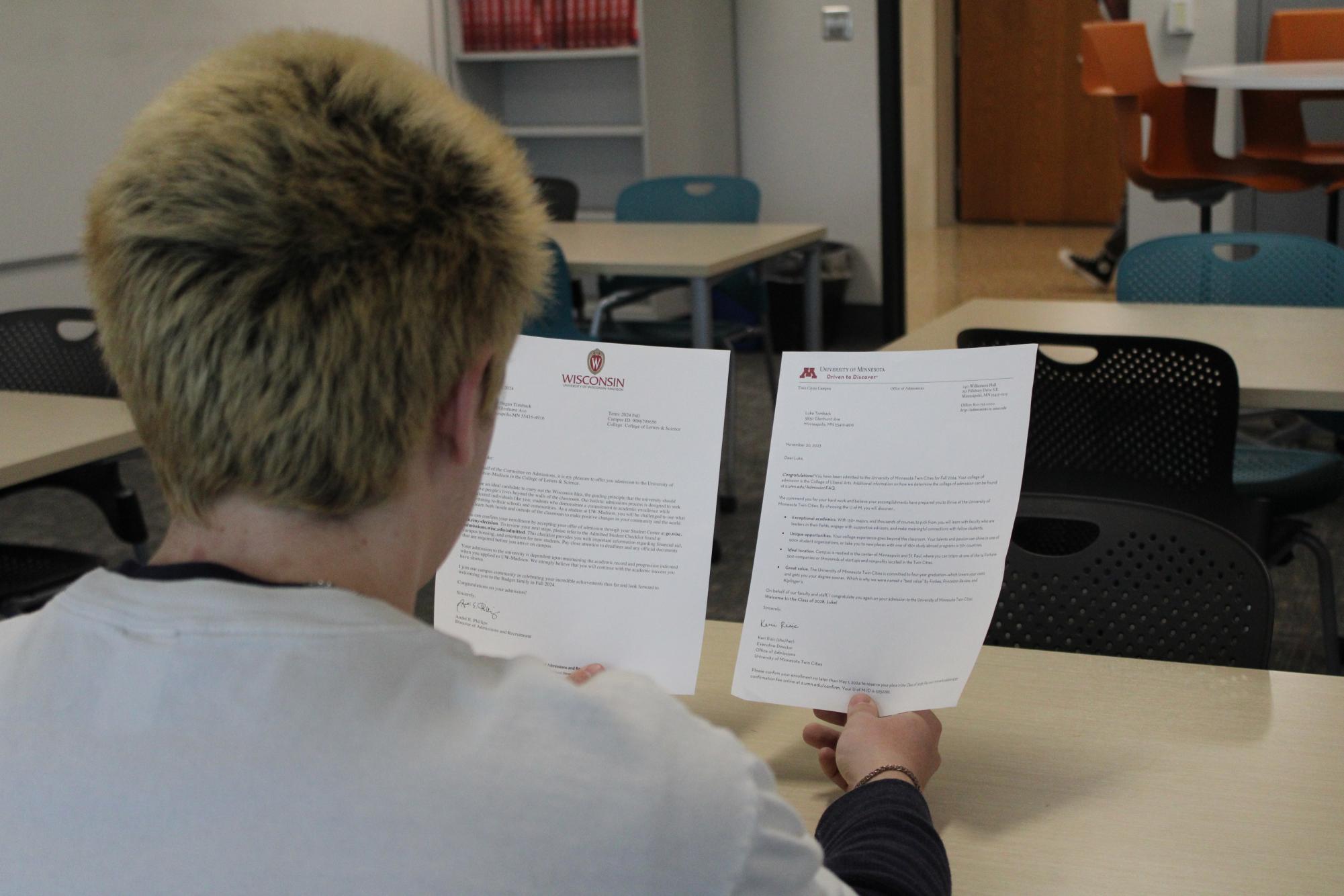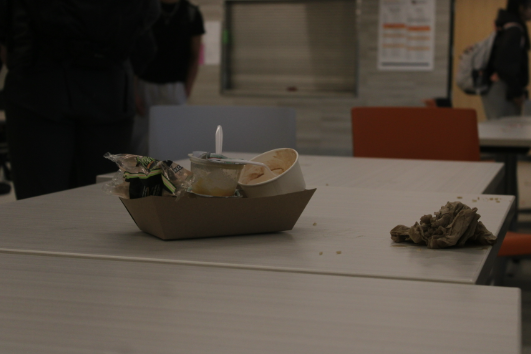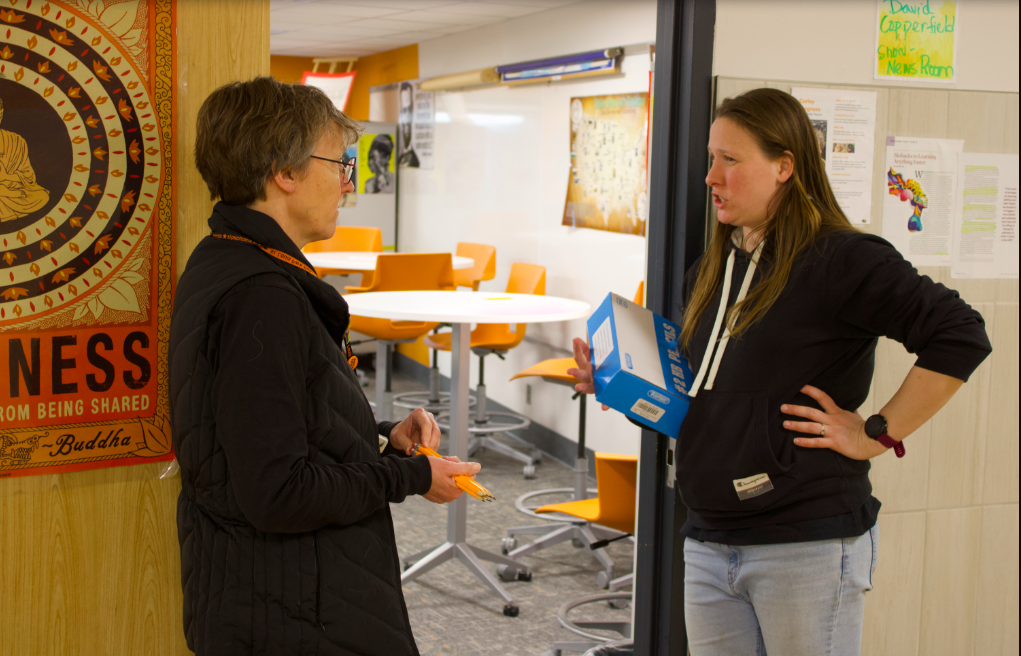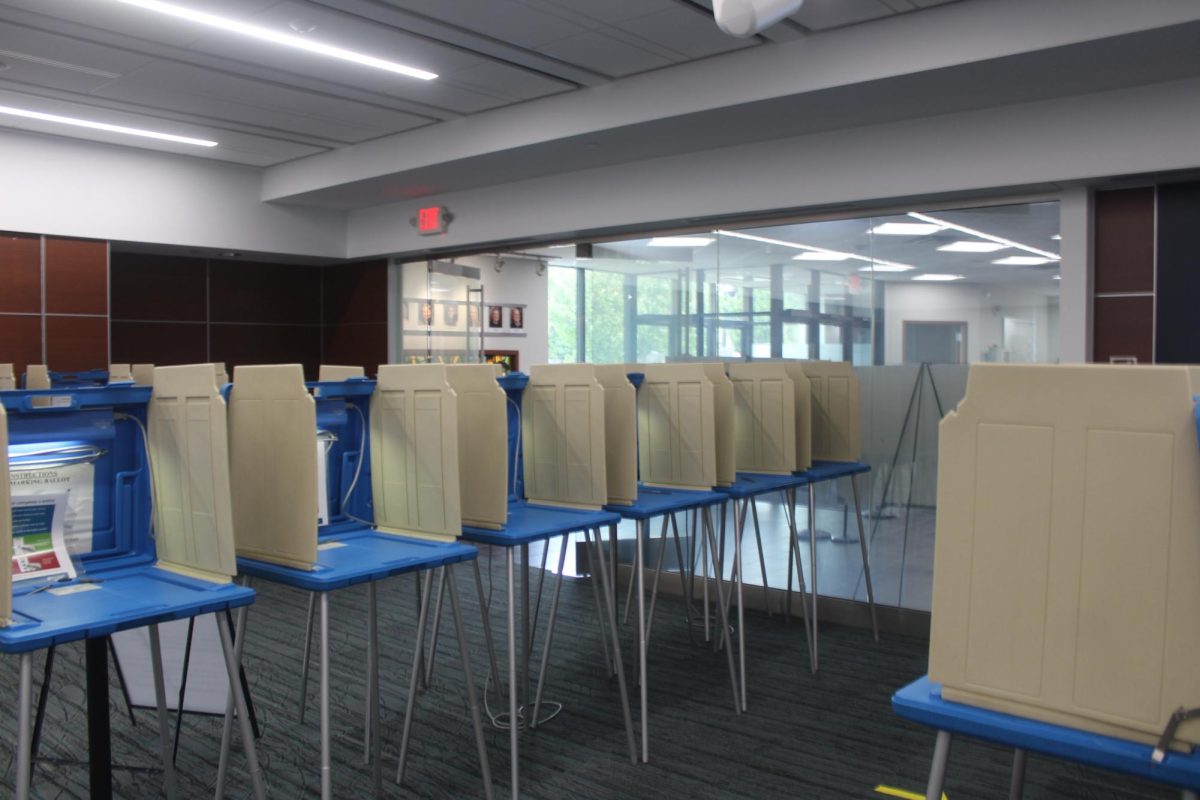How college ambitions compare

When it comes time for students to begin considering life after high school, many students explore college pathways. While trying to find a college that is a great fit can be a daunting challenge, considering the acceptance rate and academic rigor of a college is very important in making such a crucial decision. When asked why he wanted to attend a normal college, junior Jacob Balcos said his diligence plays a role in wanting to go to a less academically challenging college.
“For me personally, my work ethic, I don’t want to be in college for too long,” Balcos said. “Having to focus 100 percent of my energy into school (is why) I’m not striving for a super high prestigious college.”
According to junior Cashus Carruthers, he has similar thoughts surrounding how he perceives education itself and the rigor it seems to entail, and how an alternative option might be more well-suited.
“I don’t really care for school that much, it also seems like I would be better suited for a trade school,” Carruthers said. “I don’t like learning stuff in school.”
Heidi Cosgrove, Park’s counselor for the graduating class of 2025, said when it comes to finding a college, it has some underlying assumptions about the kids themselves.
“What’s tricky about that, is that it’s making the assumption that students know what they want to do when they’re 40,” Cosgrove said. “I’ve had students come into senior year feeling like they can’t look at colleges and they can’t apply anywhere because they don’t know what they want to do.”
Balcos said there are pressures at play while considering different colleges, and that he tries to disregard them.
“When there is societal pressure on you to (attend prestigious colleges), personally I try to ignore it,” said Balcos. “Just because there are expectations to go into higher prestigious colleges, doesn’t mean that I should do what society is doing.”
Cosgrove said she also sees societal aspects playing into the college process, and that what some kids define as a “prestigious” college might differ.
“Prestige can be different for each student, and what it means to them,” Cosgrove said. “Prestige for one person means Ivy League, prestige to another person means a private school and prestige to another person can be somewhere in between.”
Correction – May 20, 2024: As an editorial team, we have omitted a quote that we feel doesn’t align with Echo’s mission to advocate for healthy community values.
Whether students strive to go to a prestigious college or a standard college, both have their advantages and disadvantages. Junior Kiran Alwy said she would like to aim for a prestigious college, with high hopes that it will help her jumpstart a successful future.
“At the end of the day, a degree is a degree, but certain things can get you farther than others,” Alwy said. “I want to go as far as I can.”
Junior Geneva Wyant said she has the intention of attending a low acceptance rate college with the aspiration that it will help her achieve noticeable differences in her life and future career.
“It will put me in a place where I can really make a difference and impact,” Wyant said. “Going to an advanced college where it has something that I really love will let me see the difference, and what I’m putting in and getting out in the end.”
Sophomore Tess Machalek said her career goal is what is driving her to attend an advanced college.
“I want to go to law school, and for that, all the schools look at how prestigious the undergrad college you went to was. That’s a huge motivation for me to go to a more prestigious undergrad,” Machalek said.
Cosgrove said a lot of the time it is the college’s brand itself that drives kids to apply, rather than a true enjoyment of the college.
“It is a missed point of looking at the fit,” Cosgrove said. “I do see where students look at name and name alone, and they aren’t able to see as much of what that school can offer.”
According to Alwy, while preparing to apply to colleges, she thinks about how she can use her free time to explore things she enjoys, and to have her passions show through on her applications.
“During junior and senior year, my focus is ‘What can I do to make my college application as good as possible?’” Alwy said. “My goal is to do things I’m passionate about, and hopefully reflect that in my application.”
Wyant said she is using her free time to do things that will enhance her college application.
“I’ve joined sports, but I’m also doing stuff outside of school as well, such as volunteer work, to set my essay and application apart from other people’s,” Wyant said.
According to Machalek, while it is important to take college preparations seriously, it’s equally important to take the time to enjoy life at the moment and create lasting memories with friends.
“I make sure I’m getting all my work done on time and make sure it’s good work,” Machalek said. “I also make sure to set aside time to go hang out with friends and do other fun things.”
Cosgrove said there are many stressful aspects during the time of college applications that cause students to feel competition among their peers about where to apply.
“There continues to be a lot of pressure on students being able to say ‘I’m applying there too.’ ‘I got accepted there too,’” Cosgrove said. “I will also hear students say ‘I never really wanted to apply there, I just wanted to say I was applying there.’”
According to Alwy, there is unfortunately not a ton of support at Park for students who aim to go to a prestigious college, so she seeks support from her parents.
“We’re being pushed to go to college, but we don’t have a lot of support for anything outside of the Midwest colleges,” Alwy said. “In general I get a lot of support from my parents. My dad was an immigrant and my mom grew up on a farm, so they didn’t have the same opportunities that I have. My support is coming from them, and that push from them wanting me to go somewhere that they couldn’t.”
Senior year brings about a lot of changes and promises for the future. When reflecting on his high school career and his ambition to go to a low acceptance rate college, senior Henry Salita, said he was strong-willed from the start to push himself to high goals.
“Even before high school, I was very determined to start working hard to prepare myself for getting ready for college applications,” Salita said. “I’ve been thinking about what I’ll be doing with extracurriculars for a while.”
Senior Nolen Heinrichs, who is going to a college with a high acceptance rate, said one factor in his ambition to attend a high acceptance rate college was influenced by him wanting to exit a competitive environment he has been surrounded by.
“I spent a lot of my high school experience in higher level, accelerated classes, and a more competitive environment,” said Heinrichs. “I want to not be in that (environment) in college as well, more of people who are not always wanting to get the highest grade but just wanting to learn and get more experiences.”
According to Cosgrove, even after being accepted into college, it’s okay for students not to know what field they want to pursue.
“I get a little bit more worried when students say ‘I want to do this, this and this. This is what I’m going to do, this is what I’m going to be.’ I worry they will enter that postsecondary institution with potential blinders,” Cosgrove said. “I would much rather have a student go in with no clue because they are going to be so much more open to all that is out there for them.”
Senior Alicia Marglli, who is going to a low-acceptance college, said if she could change anything she did during the process of finding a college, she would put less pressure on herself during high school due to its negative effects.
“I would stress less. Towards the end, during the college application process I was burned out,” Margalli said. “I put a lot of effort in and then once college admissions came around I was burnt out.”
Salita said he anticipates that figuring out living on his own will be the hardest part of college, rather than the curriculum.
“The academic part of college won’t be the most challenging part of my experience, it’ll probably just be figuring out life on my own,” Salita said. “In general, the same idea of spending time studying, time management and social life, but I just have to do it more independently.”
According to Cosgrove, despite the challenges of senior year, she enjoys being able to see the growth of students she has worked with during their high school careers.
“I love to see when students come in senior year, and I’m excited to see where they’ll be in eight months,” Cosgrove said. “It’s so fun to see where everybody is at graduation; I met them in tenth grade, and to see their journey is what I love.”









